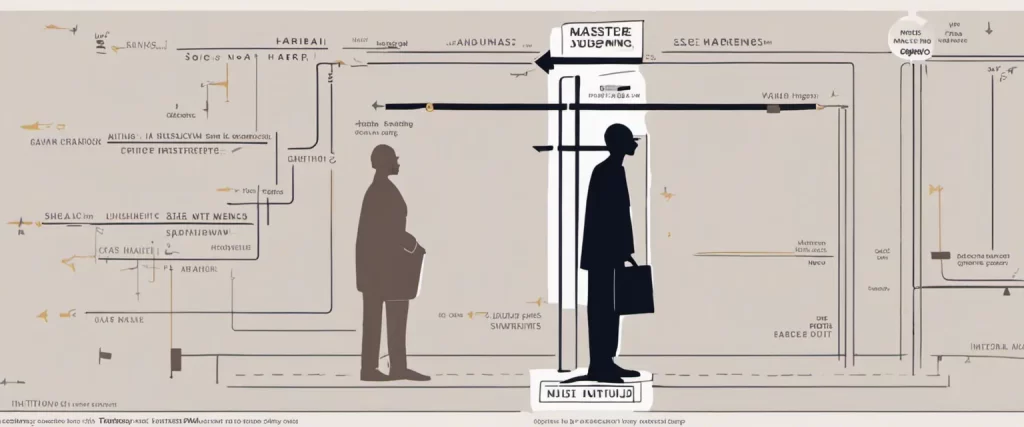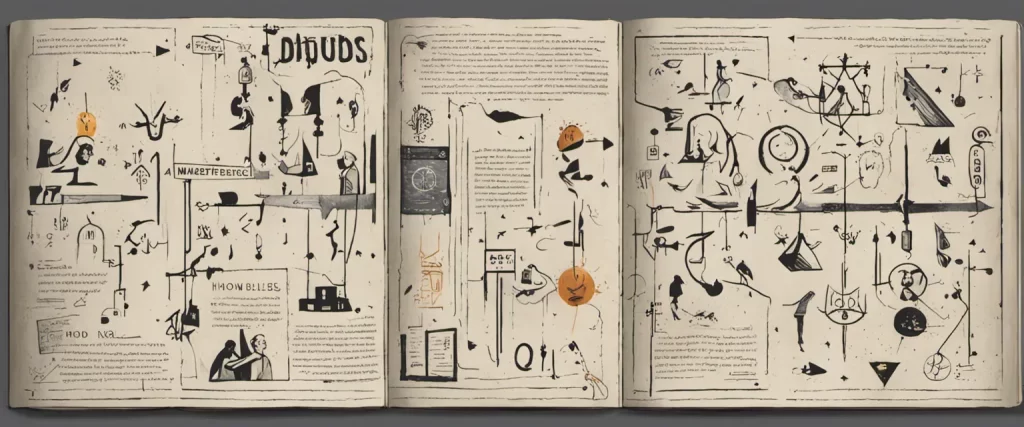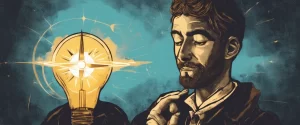——Homo Deus by Yuval Noah Harari & Sapiens by Yuval Noah Harari
The realm of Homo sapiens is a fascinating subject that has captivated scholars, thinkers, and historians for centuries. Within this vast field of study, Yuval Noah Harari presents two groundbreaking works that push the boundaries of human knowledge, encouraging readers to question the past, present, and future of our species. While Sapiens: A Brief History of Humankind meticulously examines the origins and evolution of Homo sapiens, Homo Deus: A Brief History of Tomorrow invites us to envision a future where humanity undergoes profound transformations.
In this comparative study, we delve into both Sapiens and Homo Deus, exploring how Harari intertwines historical analysis, social commentary, and philosophical musings to captivate readers. By comparing and contrasting the key themes, ideas, and hypotheses presented in these two seminal works, we aim to understand Harari’s broader narrative arc and the connections he establishes between humanity’s past and its potential future.
Sapiens, the first part of our study, embarks on a breathtaking journey through the annals of human history. Harari navigates the readers through the cognitive, agricultural, and scientific revolutions, revealing how Homo sapiens triumphed over other species, built complex societies, and formed intricate belief systems. Through this exploration, Harari challenges prevailing narratives, provoking readers to reconsider their perceptions of progress, religion, and the human-animal relationship. In essence, Sapiens serves as the foundation on which Homo Deus builds its narrative structure.
The sequel, Homo Deus, thrusts us into the realm of tomorrow, examining the trajectory of Homo sapiens and contemplating the emergence of a new species, Homo Deus. Harari explores the implications of technologies such as artificial intelligence, biotechnology, and genetic engineering, confronting readers with thought-provoking questions about consciousness, mortality, and the nature of man’s quest for meaning. While Sapiens largely focused on the past, Homo Deus propels us into an uncertain future, urging us to confront potential challenges and opportunities that lie ahead.
Through this comparative study, we aim to evaluate the evolution of Harari’s ideas, drawing connections between the two books and analyzing the continuities and divergences in his arguments. How does Harari’s storytelling style change between the two works? Has his perspective on key issues evolved? By examining the themes of humanism, technological advancement, and the future of Homo sapiens, we will unravel the consistent threads that run through both Sapiens and Homo Deus, allowing us to appreciate the interconnectedness of Harari’s grand vision.
Ultimately, our study seeks to shed light on the profound questions raised by Harari’s works, paving the way for a deeper understanding of the human condition. By undertaking this comparative analysis, we hope to offer fresh insights and ignite critical conversations about the past, present, and future of humanity, as imagined by one of the most influential contemporary historians and thinkers: Yuval Noah Harari.
Brief Summary of Two Books
Homo Deus by Yuval Noah Harari
Homo Deus: A Brief History of Tomorrow” is written by historian Yuval Noah Harari, and in it, he explores the future of humanity by delving into the intersection of science, technology, and human history. His books include 21 Lessons for the 21st Century.
The book builds upon the ideas presented in Harari’s previous work, “Sapiens: A Brief History of Humankind,” where he examined the past advancements and the story of our species. “Homo Deus” explores what lies ahead for humanity, focusing on the possibilities that emerge as technology and artificial intelligence advance rapidly.
Harari argues that we are on the verge of a new era where humans will transform into a new kind of being: Homo Deus, or “god-like humans.” He suggests that traditional problems such as disease, famine, and war have been largely overcome, and instead, the new challenges we will face are centered around the quest for eternal life, divine powers, and the search for happiness.
The book raises ethical and philosophical questions about the potential consequences of our growing reliance on technology and the impact it may have on our understanding of human nature, free will, and happiness. Harari explores concepts like bioengineering, virtual reality, and data integration to envision possible futures and the implications that come with them.
Overall, “Homo Deus” offers a thought-provoking exploration of the direction in which humanity is heading and serves as a call for collective responsibility to shape our future wisely, with awareness of the potential consequences of our choices.
Sapiens by Yuval Noah Harari
“Sapiens: A Brief History of Humankind” by Yuval Noah Harari is a non-fiction book that explores the history and development of Homo sapiens, from the emergence of our species in East Africa to the present day. Harari takes readers on a journey through time, examining the various revolutions that have shaped and transformed human societies.
The book starts by detailing the Cognitive Revolution, the moment when Homo sapiens began to surpass other species due to their ability to communicate and cooperate in large numbers. Harari argues that this revolution was facilitated by the creation of fictional stories and myths, which gave humans the ability to organize themselves in ever larger groups.
Harari then delves into the Agricultural Revolution, in which humans transitioned from a nomadic hunter-gatherer lifestyle to settling down and cultivating crops. This revolution drastically altered human societies, leading to the development of cities, social hierarchies, and the birth of civilization. However, it also brought about challenges such as the rise of inequality, violence, and the spread of diseases.
The book goes on to discuss the unification of humankind through the development of writing systems, religions, and empires. Harari explores the impact of major religions like Christianity, Islam, and Buddhism, as well as the rise and fall of powerful empires throughout history.
Moreover, Harari delves into the Scientific Revolution, which brought about substantial advances in knowledge and technology, leading to the Industrial Revolution and the subsequent modern era. He explores the immense transformative power of science, and how it has shaped and continues to shape the world.
Harari also reflects on the future of Homo sapiens, discussing the potential impact of technological advancements such as artificial intelligence and genetic engineering. He raises thought-provoking questions about the future of humanity and our responsibilities in ensuring our own survival and ethical decision-making.
Overall, “Sapiens” offers a sweeping overview of human history, exploring the key revolutions that have shaped our species and delving into the complex dynamics of human societies. It challenges readers to reflect on our past, present, and potential future as a species, offering insights and perspectives that provoke contemplation and discussion.
Comparison between Two Books

Similarities in human activities
Both Homo Deus and Sapiens by Yuval Noah Harari explore the nature of human activities and their impact on the world. These books highlight several similarities in the way humans engage in various endeavors throughout history.
1. Quest for Knowledge: In both books, Harari emphasizes the human desire for knowledge. Whether it is through scientific discoveries, religious beliefs, or technological advancements, humans have consistently sought to understand the world around them and acquire knowledge.
2. Collective Imaginations: Harari argues in both books that a crucial aspect of human activities and progress is our ability to create and subscribe to shared narratives, beliefs, and imagined realities. Whether it is the formation of religions, political systems, or ideologies, humans have a tendency to construct collective imaginations that shape their actions and societies.
3. Adaptive Capacity: Homo Deus and Sapiens emphasize the adaptability of humans. In both books, Harari discusses how humans have been able to overcome challenges by adapting their behavior and utilizing their cognitive abilities. This adaptability has enabled humans to thrive and dominate the planet.
4. Technological Advances: Both books focus on the role of technology in shaping human activities. Harari explores how technological innovations have led to significant changes in human behavior and society, from the agricultural revolution to the present-day advancements in artificial intelligence. Humans have consistently sought ways to improve their lives through technological progress.
5. Impact on the Environment: Harari addresses the impact of human activities on the environment in both books. He argues that humans have had a detrimental effect on their surroundings through activities such as deforestation, hunting, or industrialization. This theme highlights the potential consequences of our actions for the future of our planet.
6. Desire for Control: Both Sapiens and Homo Deus highlight humanity’s desire for control and the way it influences our activities. Humans have attempted to exert control over nature, other humans, and even future possibilities. This desire for control has shaped our actions in various fields, from scientific research to political systems.
In conclusion, both Homo Deus and Sapiens explore the similarities in human activities, highlighting our quest for knowledge, our ability to imagine and create shared narratives, our adaptability, reliance on technology, impact on the environment, and the desire for control. These similarities provide insight into the trajectory of human history and raise important questions about our future.
Divergences in human activities
Both Homo Deus and Sapiens, written by Yuval Noah Harari, provide insightful perspectives on human history and potential future developments. However, these two books diverge in their focus and discussion of human activities.
In Sapiens, Harari takes readers on a journey through the entire course of human history. He examines how Homo sapiens, as a species, rose to prominence and became the dominant force on Earth. Harari explores various aspects of human activities, including the development of language, agriculture, religion, and economic systems. He looks at how these activities have shaped society and fundamentally changed the way humans interact with each other and the environment.
On the other hand, Homo Deus shifts its focus towards the future of humanity. Harari contemplates the potential trajectory of Homo sapiens and discusses how emerging technologies, such as bioengineering and artificial intelligence, may redefine what it means to be human. The book explores themes like the quest for immortality, the rise of AI, and potential challenges humanity may face as these technologies advance. In Homo Deus, human activities are portrayed as a driving force behind the pursuit of scientific and technological advancements that could shape the future of our species.
While Sapiens delves into the activities that shaped the past, Homo Deus focuses on the activities that could shape the future. Sapiens emphasizes the historical impact of human activities and how they have allowed Homo sapiens to thrive and dominate the planet. In contrast, Homo Deus takes a more speculative approach, analyzing the consequences of current and potential future human activities on a wider scale.
In conclusion, the key divergence between Homo Deus and Sapiens around human activities lies in their temporal focus. Sapiens explores the historical significance of past human activities, while Homo Deus contemplates the potential ramifications of current and future human activities on the future trajectory of our species. Together, these books provide a comprehensive view of humanity’s past and future, shedding light on the profound influence human activities have on shaping our world.

Conclusion
Both Homo Deus and Sapiens by Yuval Noah Harari are excellent books that offer valuable insights into human history, evolution, and future prospects. The choice of which book to read depends on your specific interests and preferences.
Sapiens: A Brief History of Humankind provides a comprehensive overview of human history, covering our evolutionary journey from the emergence of Homo sapiens up until modern times. It explores various key factors that have shaped our species, such as agriculture, language, religion, and science. Sapiens is a highly engaging and thought-provoking book that offers a deep understanding of our past.
Homo Deus: A Brief History of Tomorrow takes a leap into the future, examining the potential directions that humanity may take in the coming decades and centuries. It delves into technological advancements, such as artificial intelligence and biotechnology, and discusses the potential implications of these developments on society, politics, and religion. Homo Deus offers a fascinating exploration of what lies ahead in terms of human evolution and the potential challenges we may face.
If you are more interested in understanding our history and the factors that have shaped us as a species, Sapiens would be a great choice. On the other hand, if you are interested in contemplating the future of humanity and the potential challenges that we may encounter, Homo Deus would be a more suitable book for you.
Ultimately, both books offer unique perspectives and valuable insights, so it could be worth considering reading both if you have the time and interest.



